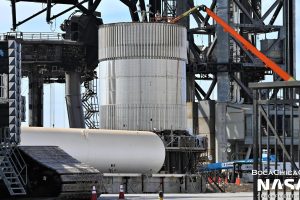- 🚀 U.S. Representative Kevin Kiley has challenged FAA Administrator Michael Whitaker over claims regarding SpaceX’s safety.
- 📝 Whitaker alleged SpaceX operated without a permit and had safety issues, which SpaceX has strongly denied.
- 🗂 SpaceX defends its operations, labeling itself as the “safest, most reliable launch provider” and refuting Whitaker’s allegations.
- ❓ Kiley’s letter demands Whitaker provide evidence for his claims and addresses concerns about regulatory practices.
- 🌍 Concerns are raised about whether FAA regulations hinder private space innovation and exploration in the U.S.
The private space industry has been a beacon of innovation, but as it continues to push boundaries, regulatory challenges emerge. Recently, U.S. Representative Kevin Kiley stepped into the limelight by questioning FAA Administrator Michael Whitaker’s allegations against SpaceX, indicating potential turbulence in the aviation regulatory landscape. Let’s delve into this ongoing saga, unpacking the core issues and implications for the future of space exploration.
The Core of the Controversy
Allegations from the FAA
Michael Whitaker, the FAA Administrator, raised eyebrows with his claims that SpaceX has operated without necessary permits and has concerning safety practices. These assertions were aired during a Transportation Committee hearing, putting SpaceX’s operational integrity under the microscope. In particular, Whitaker suggested that SpaceX failed to provide updated sonic boom analyses and mentioned that illegal operations occurred at Cape Canaveral, Florida.
SpaceX’s Rebuttal
SpaceX, known for its trailblazing advancements in space travel, was quick to dismiss these allegations. The company’s Senior Director of Global Government Affairs, Mat Dunn, was vocal in defending SpaceX, asserting that the company is the “safest, most reliable launch provider in the world.” SpaceX insists that all operations were conducted lawfully and that they provided appropriate reports and analyses to relevant authorities.
The Kiley Factor: Demanding Accountability
U.S. Representative Kevin Kiley’s involvement adds a significant layer to the narrative. His proactive stance in questioning Whitaker’s claims signals the importance of accountability and transparency in regulatory practices. In his letter, Kiley demanded that Whitaker furnish evidence to support his allegations, underscoring a need for factual clarity.
Key Questions Raised by Kiley:
- Permit Claims: Kiley requested evidence verifying the assertion that SpaceX launched missions without permits.
- Safety and Environmental Concerns: He questioned discrepancies related to safety analyses and environmental impacts.
- Regulatory Reform: Kiley’s inquiries also broached the broader question of whether FAA regulations need modernization to keep pace with fast-evolving private space technologies.
Implications for the Space Industry
Regulatory Hurdles
The ongoing dispute points to larger systemic issues within the regulatory frameworks governing space exploration. While safety and environmental protection are paramount, there is an emerging discussion on whether current regulations unnecessarily stifle innovation.
- Balancing Safety with Innovation: Ensuring safety without impeding technological progress is a delicate balance. As private companies like SpaceX continue to push boundaries, regulators must adapt swiftly to new paradigms of space travel.
- Encouraging Collaboration: Successful space exploration in the modern era could benefit from enhanced collaboration between regulators and innovators. Partnerships and open dialogues could lead to regulations that are both robust and adaptable.
The Path Forward
For the U.S. to maintain its leadership in space exploration, reimagining regulatory approaches is pivotal. The SpaceX-FAA dispute may serve as a catalyst for reform, prompting dialogues on how best to ensure safety while fostering innovation.
As this situation develops, all eyes are on how these discussions might reshape the regulatory landscape. For space enthusiasts and industry stakeholders, it’s a thrilling yet precarious moment, one that could define the next chapter of space exploration.





